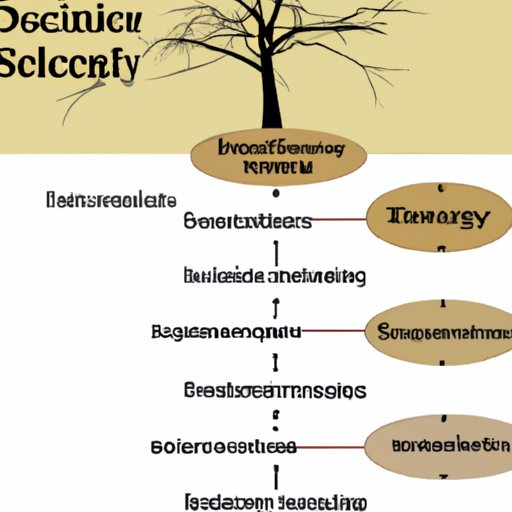Introduction
Science is a process of discovering knowledge about the natural and physical world through observation, experimentation, and reasoning. It is the study of the universe and how it works, using evidence-based inquiry to develop explanations for phenomena. Science can be divided into multiple branches including physical sciences, biological sciences, and social sciences. Each branch has its own unique methods and approaches to understanding the world around us.
The scientific method is a set of steps used by scientists to investigate phenomena, acquire new knowledge, or correct and integrate previous knowledge. It involves making observations, forming hypotheses, testing predictions, and drawing conclusions. Hypothesis testing is an important part of the scientific process, as it helps to verify whether or not a given hypothesis is true. Reasoning and logic are also essential components of science, as they allow scientists to draw conclusions and make decisions based on evidence.
Core Principles of Science
The scientific method is at the heart of all scientific inquiry. This method involves making observations, formulating hypotheses, testing predictions, and drawing conclusions. Scientists must use evidence-based reasoning and logic in order to draw valid conclusions from their experiments. Hypothesis testing is an important part of the scientific process, as it helps to verify whether or not a given hypothesis is true.
Scientific research also relies heavily on the use of mathematics and statistics. Mathematics is used to model and analyze data, while statistics are used to interpret and draw conclusions from the data. In addition, scientists must be able to communicate their findings in a clear and concise manner, so that other scientists and the general public can understand them.
Different Branches of Science
There are numerous branches of science, each with its own unique methods and approaches to understanding the world around us. The physical sciences include disciplines such as physics, chemistry, astronomy, and geology. These sciences focus on the study of matter, energy, and their interactions. Biological sciences, such as biology, ecology, and genetics, are concerned with the study of living organisms and their relationship to their environment. Social sciences, such as psychology, sociology, and anthropology, are focused on the study of human behavior and societies.
Impact of Science on Society
Science has had a profound impact on society. Through scientific advancements, humans have been able to develop technologies that have improved our quality of life. For example, advances in medicine and healthcare have enabled us to better diagnose and treat diseases, while technological advancements have allowed us to communicate more easily and access information faster than ever before. In addition, scientific research has led to economic benefits, as new products and services have been developed.
“Science has a tremendous power to improve our lives,” said Dr. Shirley Ann Jackson, President of Rensselaer Polytechnic Institute. “It has enabled us to extend our lifespans, increase our incomes, and enhance our quality of life.”
History of Science
The history of science dates back to ancient times when humans first began to observe and record the natural world. During the classical period of ancient Greece (500 BC – 300 AD), many of the foundations of modern science were developed. This period saw the development of mathematical theories, such as geometry and calculus. In the Renaissance (14th – 17th centuries), there was a renewed interest in the scientific method and the development of new technologies, such as the telescope and microscope.
In the 19th and 20th centuries, science continued to evolve with the development of quantum mechanics and the theory of relativity. This period saw the emergence of new fields of science, such as molecular biology and computer science. Today, science continues to advance, with the development of new technologies, such as artificial intelligence, and the exploration of space.
Conclusion
Science is a process of discovering knowledge about the natural and physical world through observation, experimentation, and reasoning. It is the study of the universe and how it works, using evidence-based inquiry to develop explanations for phenomena. There are numerous branches of science, including physical sciences, biological sciences, and social sciences. Each branch has its own unique methods and approaches to understanding the world around us.
Science has had a profound impact on society, leading to technological advances, economic benefits, and health care improvements. The history of science dates back to ancient times, but it continues to evolve and advance today. From the development of mathematical theories to the exploration of space, science has shaped the world we live in today.
(Note: Is this article not meeting your expectations? Do you have knowledge or insights to share? Unlock new opportunities and expand your reach by joining our authors team. Click Registration to join us and share your expertise with our readers.)
